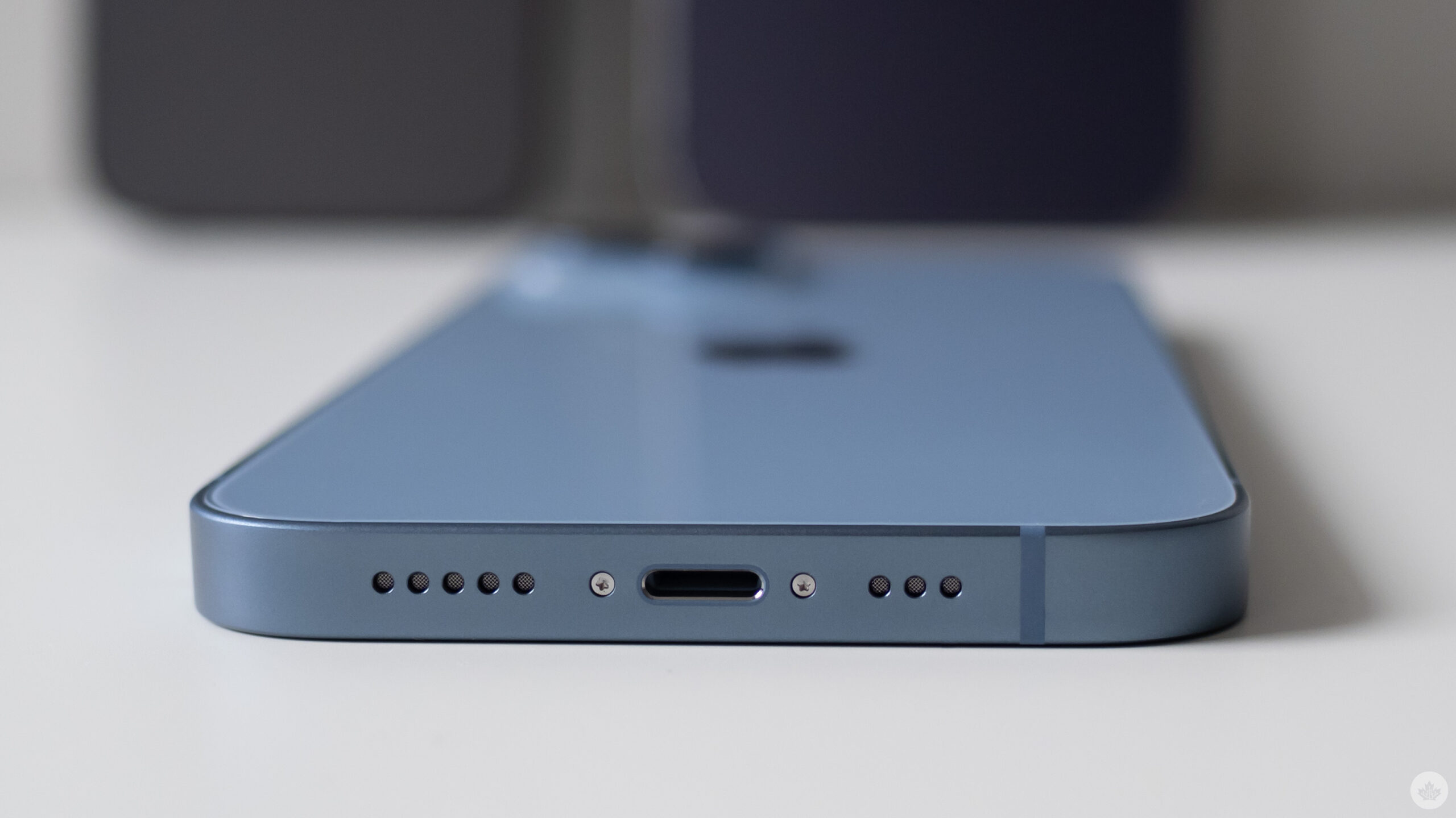
Apple is expected to unveil the iPhone 15 series next week. While the devices will likely sport a variety of new features, the one that will likely draw the most attention (and ire) will be the new USB-C port.
On stage at the ‘Wonderlust’ event, the Cupertino, California-based company will likely only talk about the benefits of the USB-C switch and almost certainly won’t acknowledge the real reason it’s making the change: new rules from the EU mandating USB-C as the only option for smartphones and other technology.
Bloomberg‘s reliable Mark Gurman detailed his expectations for Apple’s USB-C announcement in his latest Power On newsletter. According to Gurman, Apple prefers to “operate from a position of strength” when introducing a new product/feature or when dealing with the media. Because of this, Gurman says Apple won’t acknowledge the EU’s role in forcing the change on stage and instead will focus on all the benefits, describing the change as a “win” for customers.
Gurman laid out several benefits Apple may choose to highlight, such as that customers will be able to use one cable across their iPhone, Mac and iPad (assuming they have a USB-C iPad), improve data transfer speeds, faster charging, and that iPhones will finally work with chargers used by billions of non-Apple devices. I’m not so sure Apple will highlight that last part, but generally, all of the above are benefits of the change.
Benefits… and drawbacks
Naturally, changing the charging port on the iPhone will have several drawbacks too. As Gurman points out, Apple needed to devote resources to the switch, both for hardware and software, which could mean other features lost out. There’s also a risk of a PR nightmare for the company — iPhone users were mad when Apple made the shift to Lightning back in 2012 and when the company killed the headphone jack in 2016. That could happen again this time, though there’s also a cohort clamouring for the switch.
Finally, and perhaps most important to Apple, switching to USB-C potentially makes it easier for iPhone users to switch to Android. Similarly, Apple could stand to lose some licensing revenue with the switch.
The former I think is a less warranted concern overall — USB-C might make it slightly easier to switch from iPhone to Android, but anyone seriously considering the switch could do so regardless of the port. Besides, increased compatibility with accessories would mean Android users can more easily switch to iPhones too.
The potential for lost licensing revenue is a bigger threat to Apple, which has set up a Made for iPhone (MFi) certification program and charges licensing fees to accessory makers that use Lightning and MFi certification.
Previous rumours indicated Apple planned to continue the MFi program with USB-C accessories and, potentially, limit data transfer speeds and charging speeds on non-certified cables — a move the EU is not a fan of. Regardless, Apple will likely lose some degree of revenue, it remains to be seen how much.
As for PR, Gurman says Apple will do what it can to avoid a potential debacle. That includes shipping a USB-C cable in the iPhone box and launching Lightning-to-USB-C adapters (hopefully those ship in the box too). However, Gurman says many people will encounter issues with the charging brick, in part because Apple stopped including charging bricks with its phones. Ultimately, the company won’t be able to please everyone with the switch, and there’s bound to be some blowback no matter what Apple does.
You can check out the full Power On newsletter here.
MobileSyrup may earn a commission from purchases made via our links, which helps fund the journalism we provide free on our website. These links do not influence our editorial content. Support us here.


